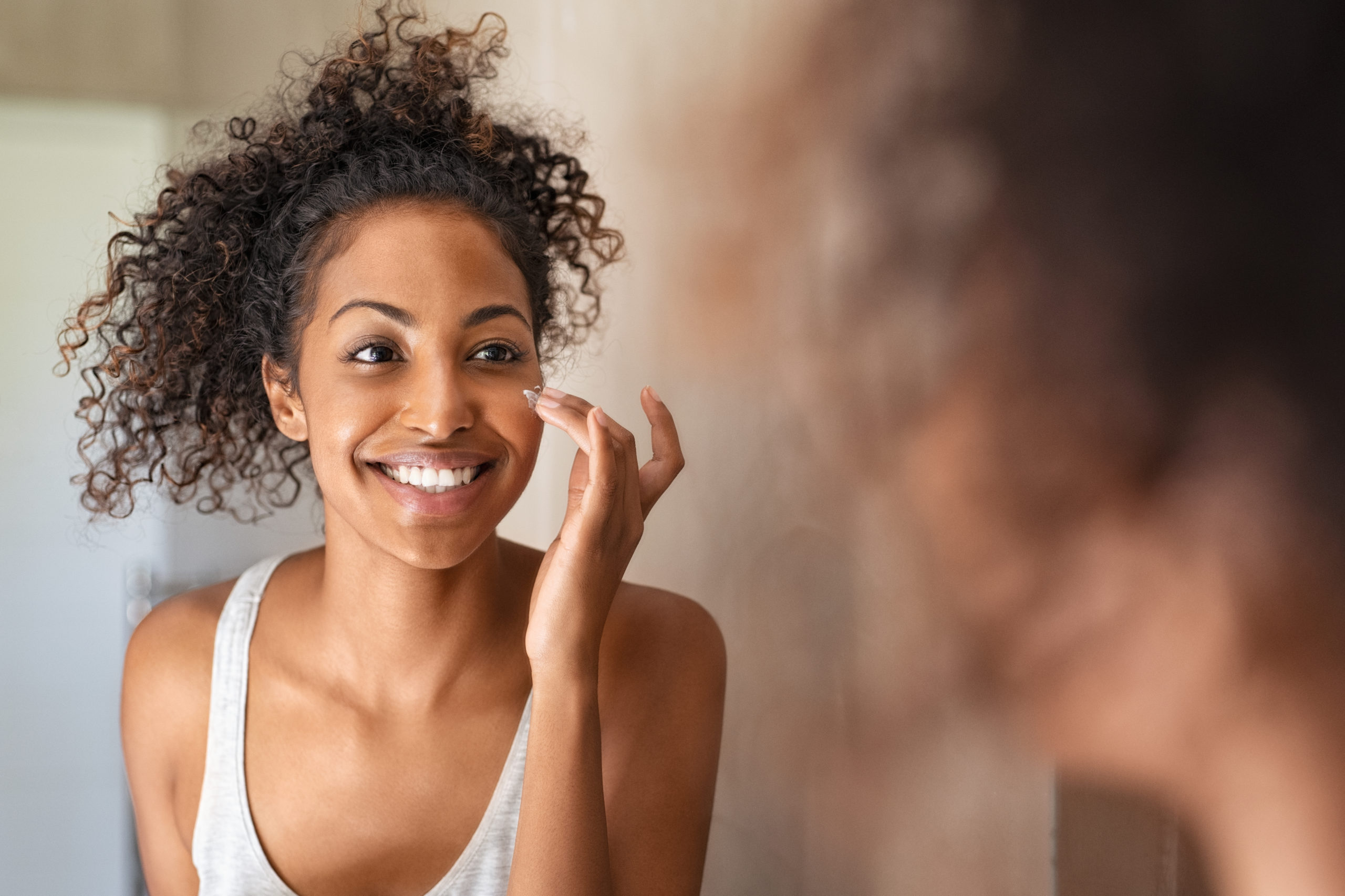Beauty...

By Michelle Rostamain
With every ailment, beauty quandary, and life dilemma, Google remains the go-to source for keeping us in check. The problem? Aside from learning how to properly put on a duvet cover, not all of the information we’re presented with is accurate or backed by experts. And as skincare buffs, we need solid advice when it comes to caring for our bodies largest organ.
In our efforts to achieve our best skin yet, we decided to tap the knowledge of board-certified dermatologist Dr. Stefani Kappel to get answers to the most frequently Googled skincare questions.
Keep scrolling to get the scoop on everything from the proper way to care for your skin post-workout to how to avoid that dreaded white cast SPF often leaves behind.
Whether you’re loyal to your Pilates reformer or prefer to crank out a session at the gym, Dr. Kappel says that your skin should definitely get a cleanse after a workout. “Sweat and sebum that get secreted during a workout can clog the pores, which can lead to acne, blackheads, dilated pores, and even premature aging,” she explains. ” Also, sebum and sweat sitting on the face may cause an inflammatory cascade in the skin that makes dermatologic conditions like acne and rosacea worse.”
By washing your face after working out, the pores are open and clean, and can allow the skin to breathe.
Use cold water (to constrict the blood vessels and thus, reduce that post-workout redness) and opt for a gentle cleanser followed by a toner to close the pores and eliminate acne-causing bacteria.
The world of skincare actives can kick acne to the curb, impart a radiant glow, and stop signs of aging in its tracks. But Dr. Kappel says that there are certain ingredients that shouldn’t be mixed, either because they cancel each other out or they may lead to skin sensitivity. For example, retinol and AHAs/BHAs shouldn’t be mixed because “both can increase skin sensitivity and irritation when used at the same time, especially if you’re new to actives,” notes Dr. Kappel.
Retinol and benzoyl peroxide also shouldn’t be mixed, as benzoyl peroxide can change the molecular configuration of tretinoin, rendering it ineffective in your routine. Finally, while vitamin C and niacinamide both offer brightening benefits, Dr. Kappel says that when applied at the same time they can compete with each other and lead to skin irritation, especially if you have temperamental skin, to begin with. As far as retinol is concerned, it can safely be layered and mixed with hydration, ceramides, glycosaminoglycans, hyaluronic acid, and growth factors.
Word on the street is that popping your skincare products in the fridge provides refreshingly cool benefits. According to Dr. Kappel, though, you should take into account the product formulation before chilling it.
“Certain active ingredients have different levels of stability, and most are stable at room temperature,” she says.
“Unless specified differently, it’s best to keep your products at room temperature, as even though it may feel calming and soothing when chilled, the lower temperatures may destabilize the active ingredients.” So, what products can be placed in the fridge? Sheet masks, eye creams, toners, serums, and beauty tools. Dr. Kappel says that chilled skincare is best for those with rosacea, dermatitis, eczema, acne, or other inflammatory skin conditions.
Sunscreen whitecast occurs when a product’s formula contains titanium dioxide or zinc oxide. Dr. Kappel notes that darker skin tones may be more susceptible to whitecase, but a sure-fire way to combat this is to use a tinted mineral formula that contains shade-adjusting pigments that work to offset the white film.
Also, you can look for an iron oxide component in the sunscreen formula, which Dr. Kappel says can “not only protect your skin from environmental pollutants, but it can provide a tint that also hides the whitecast from titanium dioxide and zinc oxide.”